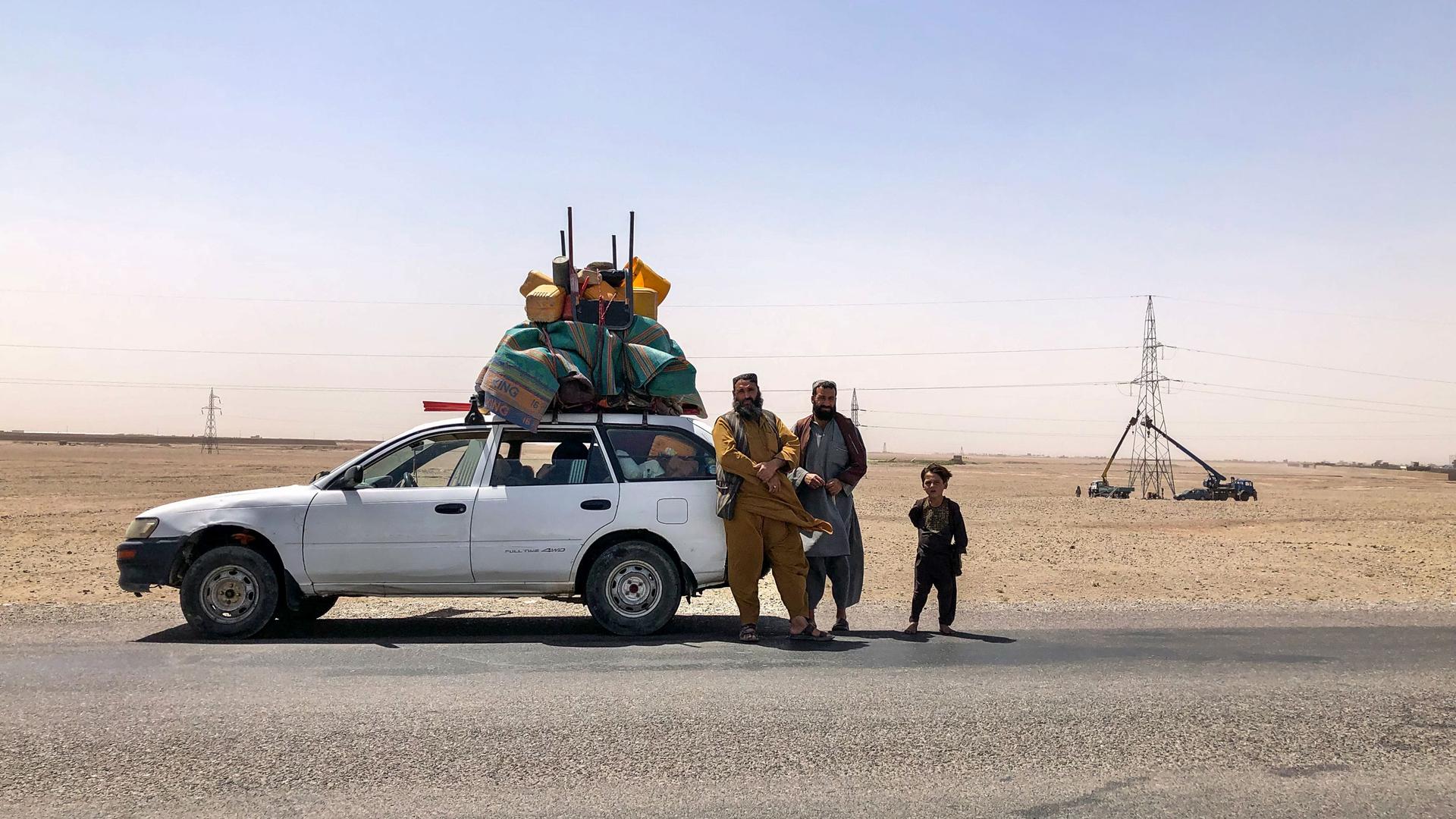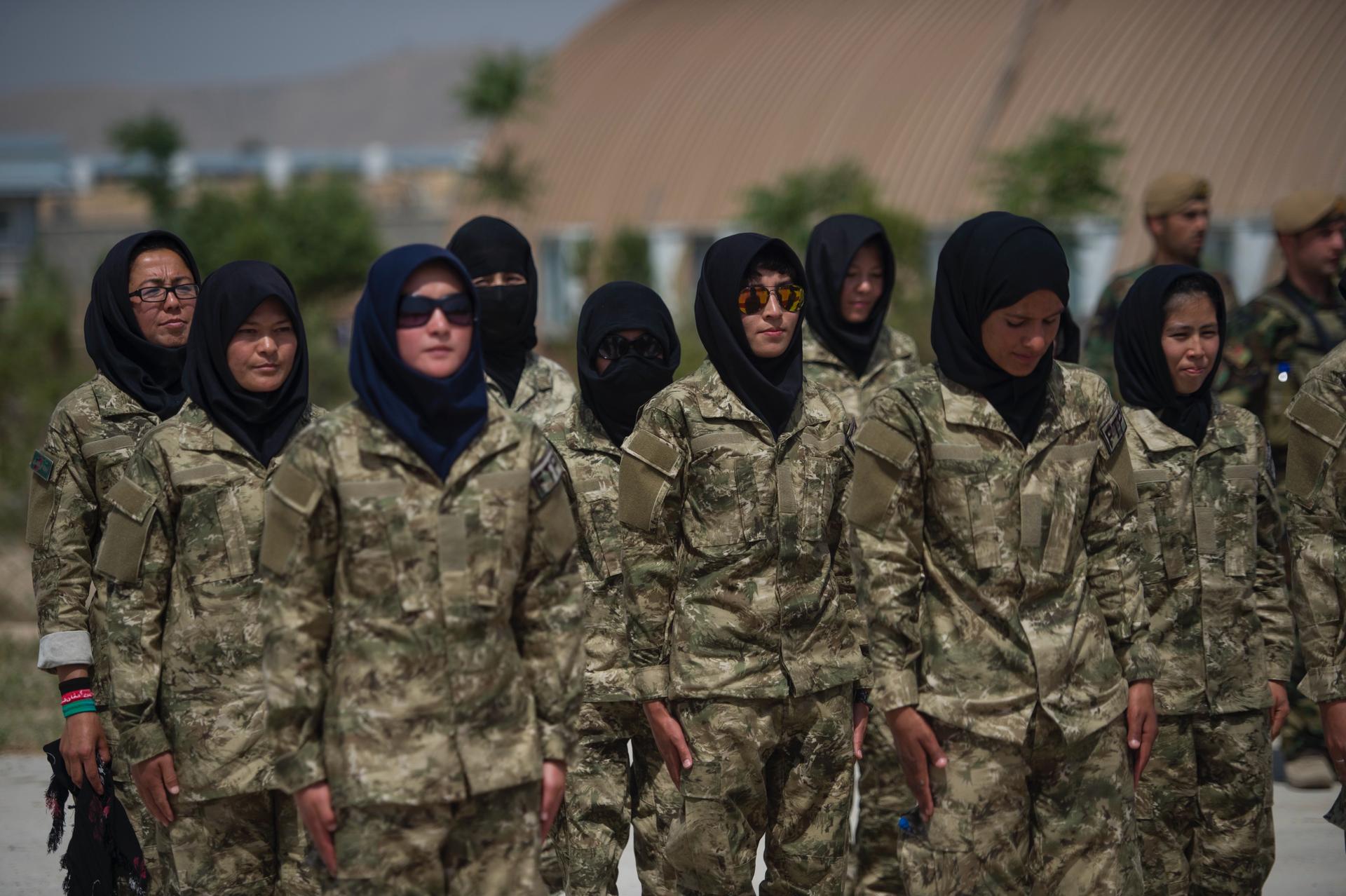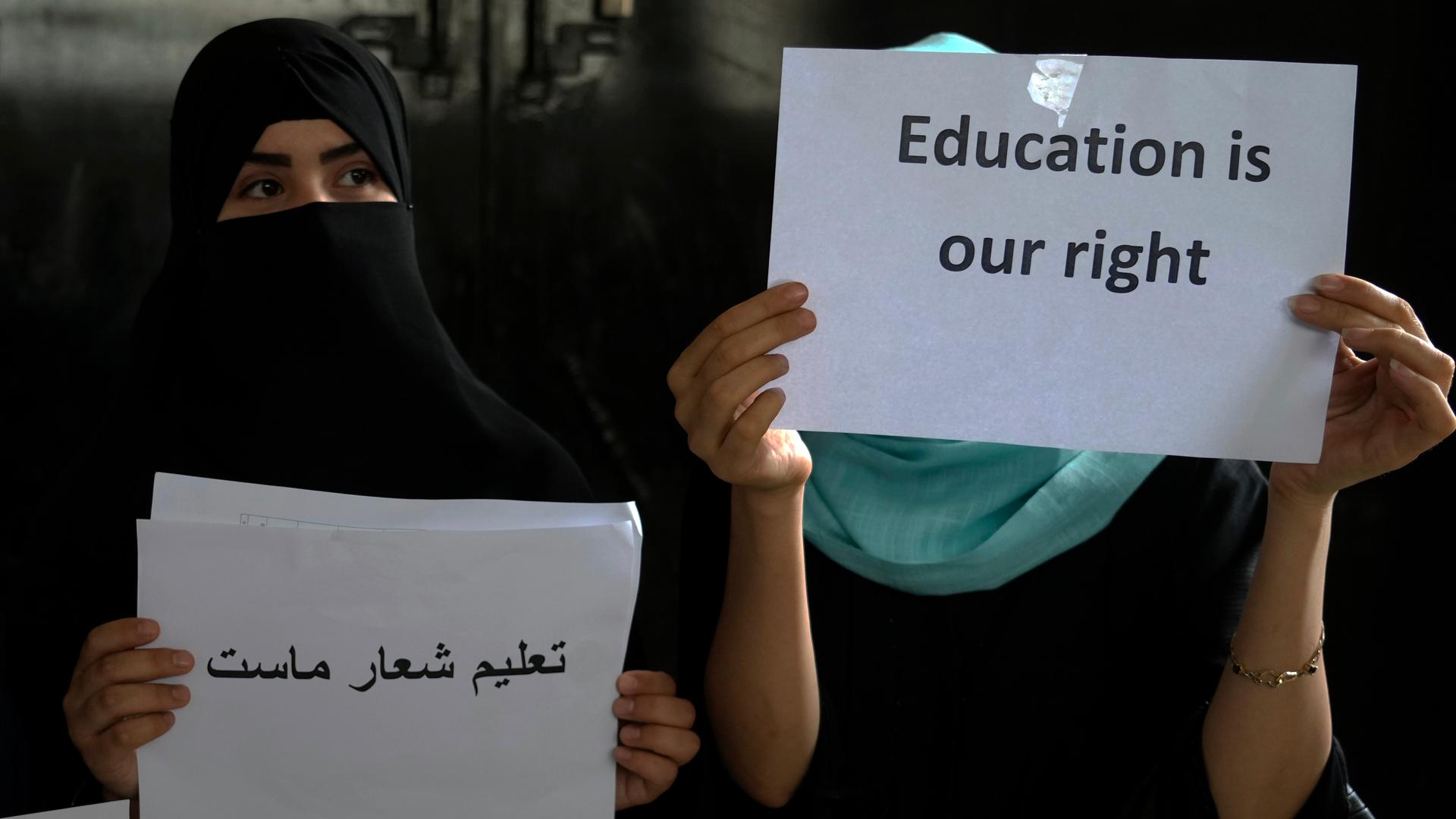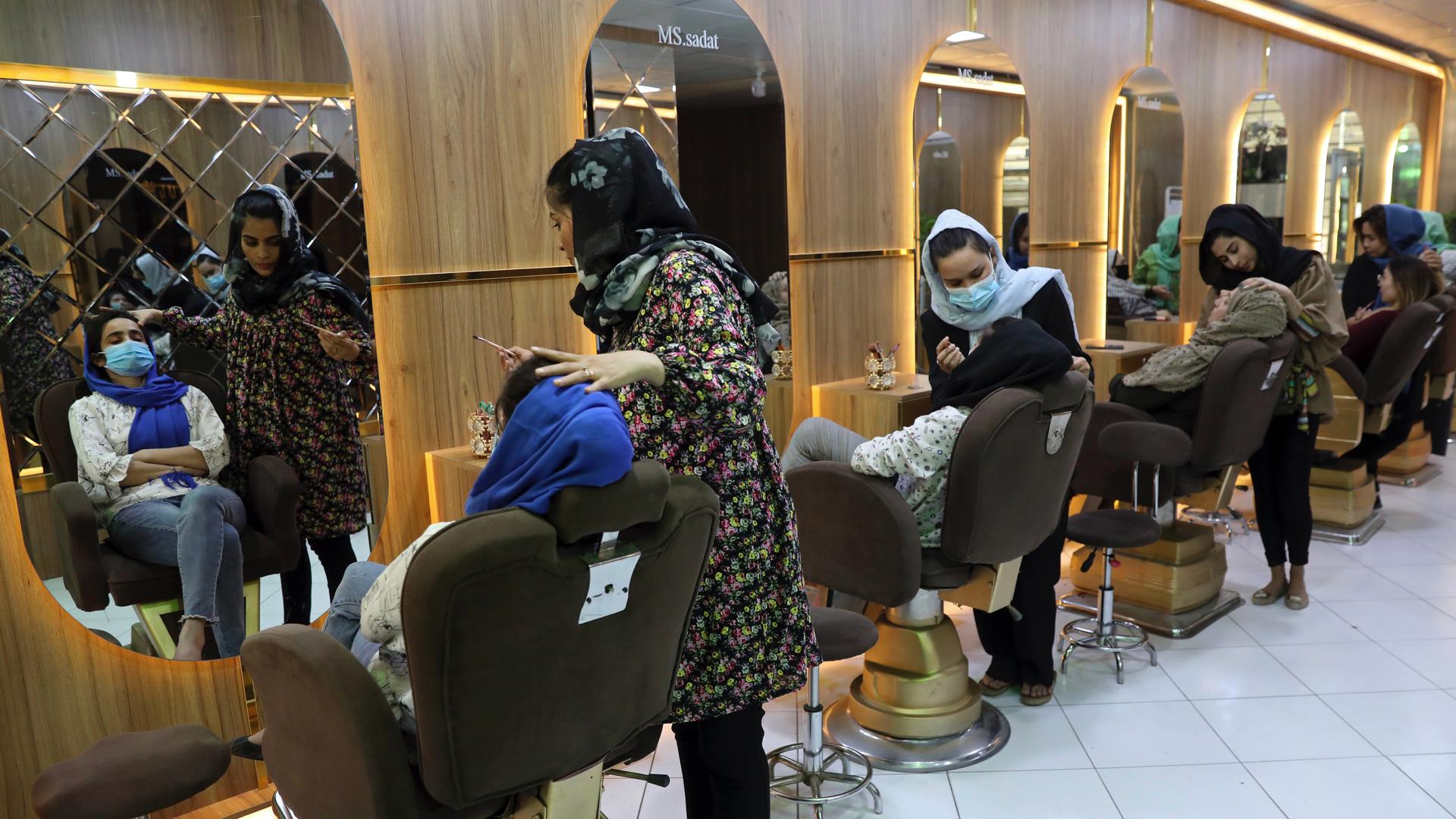Afghanistan
This Afghan female fighter fought with US troops. Now, she’s readjusting to life in the US.
Over the course of two years, Sima shares her struggle to make a life in the US in the podcast “Stranger Becomes Neighbor.” The evacuation from Afghanistan is just the beginning of a story that is still developing.
After Taliban ban, women NGO workers in Afghanistan struggle to make ends meet
Last December, in yet another blow to women’s rights in Afghanistan, the Taliban announced a ban on women working for nongovernmental organizations. Thousands of women lost their jobs overnight. The months since have been some of the most difficult for them.
Afghans who fled to the US hope that Congress will fix their status
After Afghanistan fell to the Taliban almost two years ago in August, tens of thousands of Afghans made their way to the United States. They were allowed to stay under a program called “humanitarian parole.” But that status expires in a couple of months, and although they can renew one time, many are calling for Congress to pass the Afghan Adjustment Act, which would allow them to seek more permanent status.
Afghan families traverse most of Latin America to seek asylum at the US border
The US government changed the rules governing how people can seek asylum at the US-Mexico border last week, as a pandemic-era policy called Title 42 expired. Although it may become more difficult, thousands of people are still making their way from South America to the US border, including migrants from all over the world. Some are making their way through the Darien Gap, a dangerous jungle that separates Colombia and Panama.
US special envoy: Taliban ‘puts women’s right at peril everywhere’
With continued violations of women’s rights in Afghanistan, US Special Envoy Rina Amiri tells The World’s host Marco Werman that not normalizing the Taliban government is crucial to fighting hardline elements in the country, and for setting a precedent in other places.



